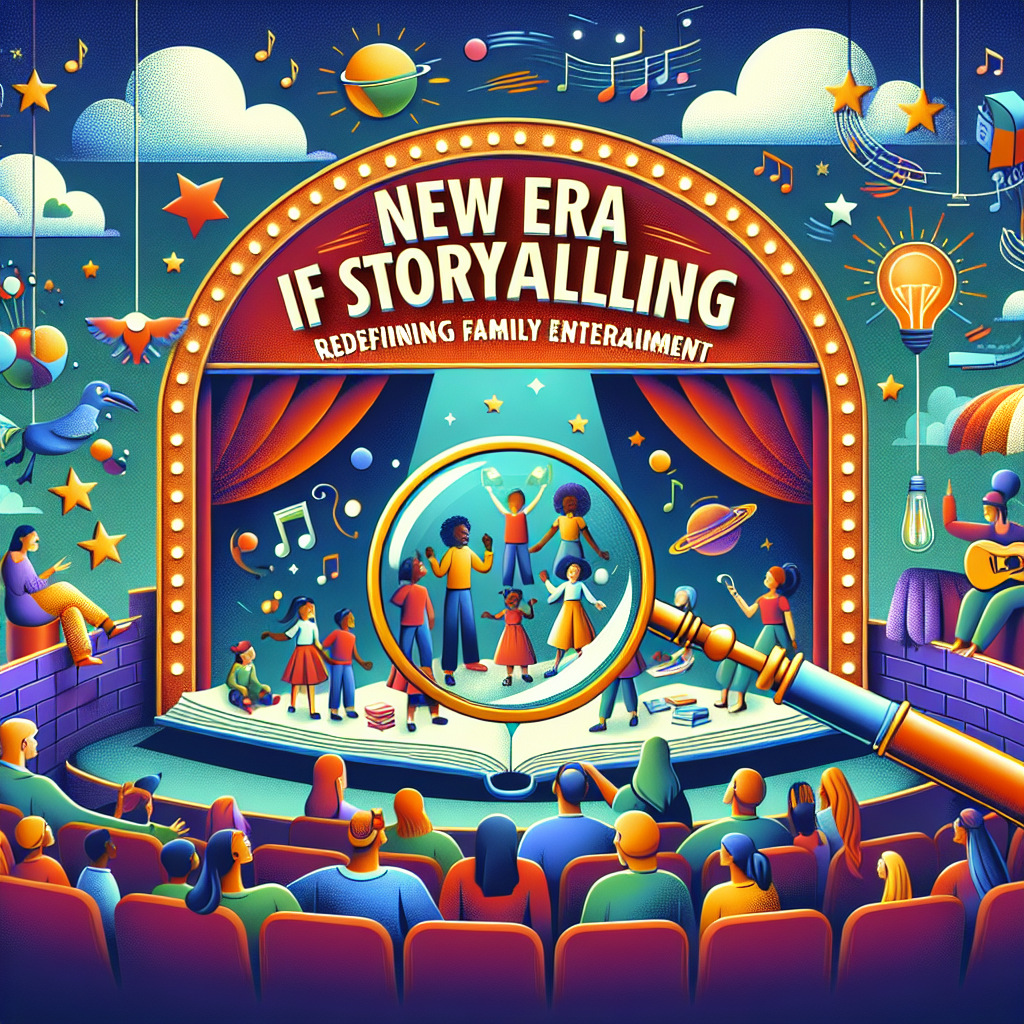Disney's Bold New Era: How 'Woke' Storytelling is Redefining Family Entertainment for a New Generation
Disney, a name synonymous with family entertainment, has always been a beacon of imagination and creativity. However, in recent years, the company has embraced a more progressive narrative approach, often labeled as “woke.” This shift is not just a passing trend but a fundamental reimagining of its storytelling ethos. As we dive into this topic, we’ll explore how this bold new era of ‘woke’ storytelling is redefining family entertainment for a new generation.
Understanding 'Woke' Storytelling
The term 'woke' has evolved from its origins in social justice movements to describe a broader awareness of social issues, including race, gender, and sexuality. For Disney, this means crafting narratives that resonate with the diverse experiences and backgrounds of today's audiences. Rather than sticking to traditional tropes that often marginalized certain groups or perspectives, Disney is now prioritizing inclusivity and representation in their storytelling.
Take, for example, Disney’s animated feature “Raya and the Last Dragon.” The film not only showcases a Southeast Asian-inspired fantasy world but also features a strong female lead, highlighting themes of trust and unity in a divided world. This kind of storytelling encourages younger viewers to appreciate diversity and understand the importance of empathy, making it a significant departure from the more simplistic narratives of yesteryears.
Impact on Characters and Narratives
One of the most noticeable changes in Disney’s approach is the development of complex characters that reflect a broader spectrum of identities and experiences. Characters like Moana, who embodies strength and resilience, and Luca, who explores themes of friendship and acceptance, are reshaping the archetypes that children have grown up with. This evolution is crucial as it allows young audiences to see themselves in the stories they consume, fostering a sense of belonging and validation.
Moreover, Disney has started to address controversial topics head-on. For instance, the live-action adaptation of “The Little Mermaid” features Halle Bailey as Ariel, challenging traditional casting norms and signaling a commitment to diversity. Such choices not only broaden representation but also invite discussions about cultural appreciation versus appropriation, allowing families to engage in meaningful conversations about social justice and acceptance.
Audience Reception and Criticism
As with any significant change, Disney’s pivot toward 'woke' storytelling has not been without its critics. Some traditionalists argue that this shift dilutes the magic and timelessness of Disney’s classic tales. They express concerns that focusing on social issues may alienate certain audiences or detract from the escapism that Disney has historically offered. However, it’s essential to recognize that the landscape of family entertainment has changed dramatically, and young audiences today are more socially aware and eager for stories that reflect their realities.
Interestingly, the reception has been overwhelmingly positive among younger viewers and progressive families who appreciate the more nuanced storytelling. Films like “Encanto” not only entertain but also educate audiences about cultural heritage and the importance of family dynamics. This blend of entertainment and education is key to Disney’s renewed success, as it aligns with the values of today’s families.
The Future of Disney: A Path Forward
Looking ahead, Disney's commitment to 'woke' storytelling is likely to influence its upcoming projects significantly. With a slate of films and series in development, including more diverse narratives and characters, there’s a palpable excitement about what’s next. Disney has already announced plans for sequels and spin-offs that continue to explore diverse themes, such as the upcoming “Frozen 3,” which promises to delve deeper into the complexities of family and identity.
Moreover, Disney’s expansion into streaming platforms like Disney+ has provided a unique opportunity to experiment with shorter series that tackle social issues in a more digestible format. Shows like “Ms. Marvel” not only entertain but also educate viewers on the experiences of a Muslim superhero navigating life in America. This approach allows Disney to reach a broader audience and engage in discussions that are vital for the next generation.
In conclusion, Disney’s pivot towards 'woke' storytelling is not merely a trend; it’s a transformative approach that reflects the changing values of society. By embracing diversity and addressing contemporary issues, Disney is redefining what family entertainment looks like for a new generation. As they continue on this path, one thing is certain: the magic of Disney will remain relevant, resonating with audiences of all ages.
```
No comments yet. Be the first to comment!